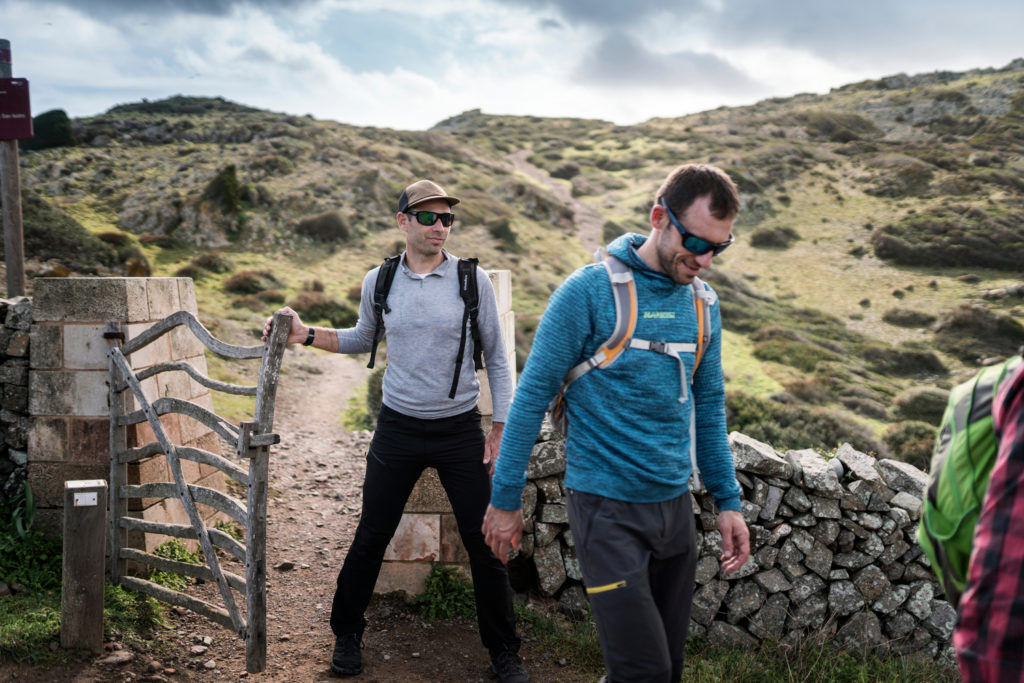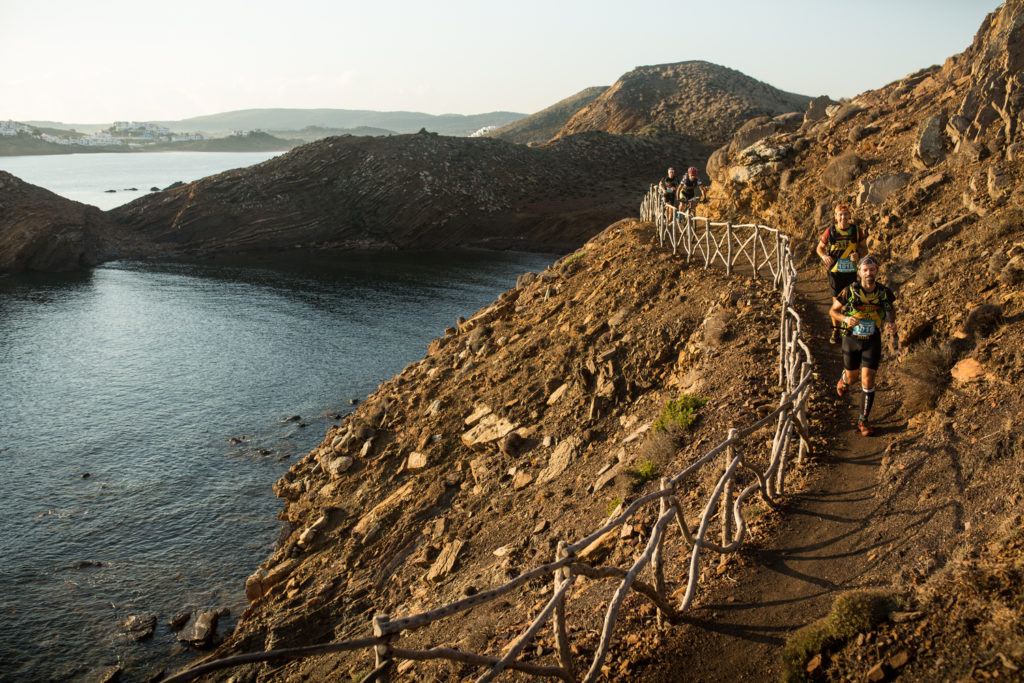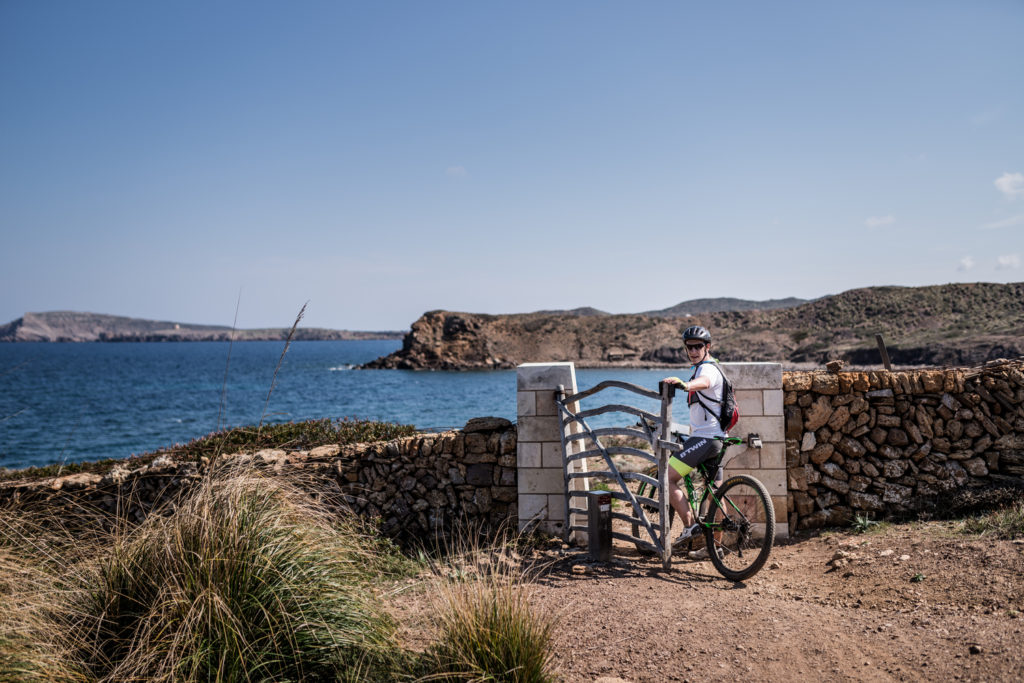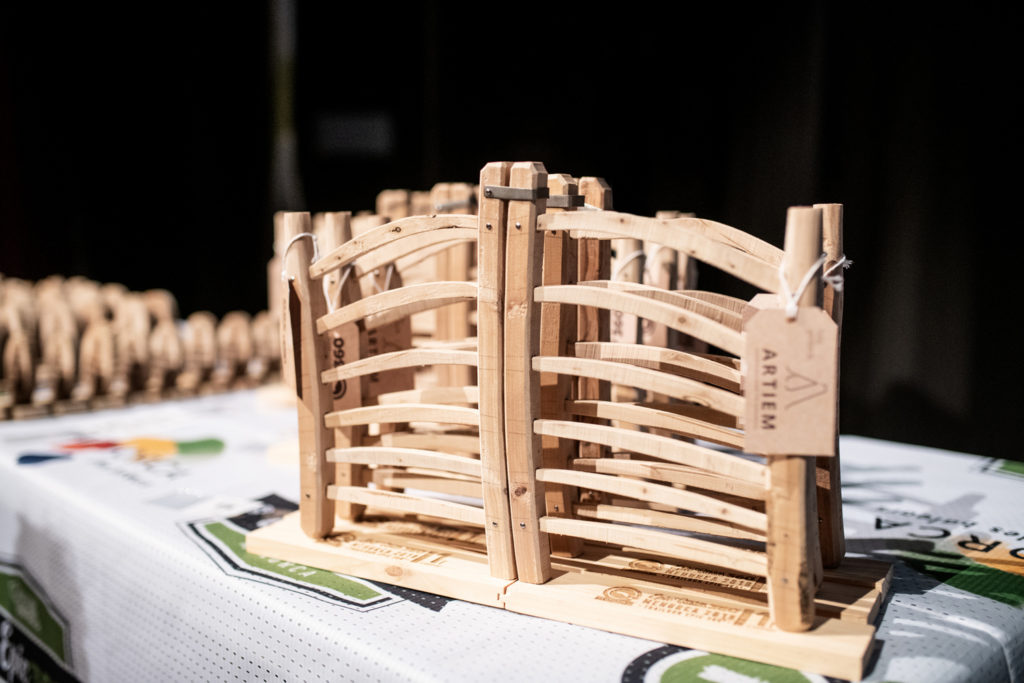The gates and rails made of wild olive tree wood are a characteristic element of the rural paths of the island. Its rustic look, which gives the Menorcan trails a unique personality, is the work of master craftsmen who embody an ancient tradition.
Anyone who has gone through the rural paths of Menorca, either on foot or by bike, will know that the traditional work carried out by generations and generations of artisans can be seen at every step. You may, however, end up doubting which craftsman has the biggest influence on the look and personality of these ancient paths. Will it be the paredador, who is responsible for the dry stone works? Or will it be the arader, author of their wooden elements?

Arader, wild olive wood artist
Arader is the name given to the traditional craftsman carpenter in Menorca. This trade has been passed down from generation to generation, along with the secrets of how to work with ullastre. The wood of these so common wild olive trees is the essential raw material for the araders.
On Menorca paths in general and on the Camí de Cavalls in particular, hikers and bikers often come across the work of araders. Especially in the form of the characteristic gates, which close the openings in walls and fences. They allow people to pass through while preventing livestock from running away. That’s why it is very important that visitors leave them closed in their wake.
Another very attractive element in some places on the Menorcan paths are the railings. Some of them are quite long, especially in areas with steep coastlines where they perform an essential safety function for people.
Both gates and guardrails offer photogenic snapshots.

Millennial history
The task of the arader has been key to Menorcan society since the time of the Romans, who colonized the island in 123 BC. They were responsible for the introduction of the plow to till the land. Note that the name “arader” comes from name of this agricultural tool (arada in Catalan).
The Menorcan economy has depended significantly on agriculture and stockbreeding until the 20th century industrialization. And the tools were traditionally made of wood. So the araders were highly sought after craftsmen to make all kinds of tools and also to repair and maintain them.
Plows, carts, handles of all kinds of tools, tables, benches… all were made by an arader.

The araders today
Industrialization has brought a lot of machinery and tools of other more modern materials to the countryside tasks. Agriculture and livestock still have a relevant role in Menorcan society, but currently they depend little on the work of the araders.
On the other hand, the Menorcan essence and its personality are still very present in the wild olive tree wood craft and the masters who practice it continue to be highly valued professionals. Of course, they are no longer focused on agriculture tools, but the orders theyr receive today take them rather towards the decoration and interior design sector: gates for summer villas, rustic railings to decorate modern stairs, pieces of art, gifts and furniture of all kinds, from benches and tables to chairs and stools, lamps or coat racks.
Even the winners of our sister race Epic Camí de Cavalls 360º have taken as a souvenir a trophy of wild olive wood, which represent a traditional gate and is made by the craftsman arader Ovidi Pons.

